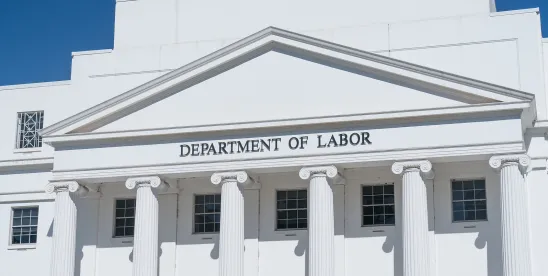Starting July 1, 2024, employers must satisfy a higher salary threshold in order to consider employees as exempt from Fair Labor Standards Act (FLSA) overtime rules. Following proposed rulemaking in August 2023, the U.S. Department of Labor (DOL) finalized a rule on April 23, 2024, setting the standard salary level for the “white collar” exemptions under the FLSA at $844/week as of July 1, 2024 (up from the current $684/week). The weekly salary requirement for white collar exempt employees will then increase to $1,128/week on January 1, 2025. This represents an almost 65% increase in the minimum exempt salary threshold by January 1. It is important to note that paying the minimum salary alone does not establish that an employee is properly classified as exempt. Rather, white collar exempt employees must also satisfy the relevant “duties test” under the FLSA, the content of which remains unchanged by the final rule.
The final rule also increases the total annual compensation threshold required for an employee to qualify for the FLSA’s “highly compensated employee” exemption (HCE). As of July 1, the annual total compensation[1] requirement for the HCE exemption rises to $132,964/year (up from $107,432/year). The HCE requirement further rises to $151,164/year on January 1, 2025. This represents more than a 40% increase by January 1. Of note, the January 1 threshold compensation requirement for the HCE exemption matches that used by the Federal Trade Commission to define “senior executive” in relation to noncompete agreements; however, the non-monetary criteria are not identical.
These increases will be the first since January 1, 2020. Future updates will occur every three years starting January 1, 2027, per the final rule. Future updates will use then-current wage data to determine increases. The DOL will publish a notice in the Federal Register with the new earnings levels at least 150 days prior to scheduled updates. The final rule does allow the DOL to temporarily delay a scheduled update to the salary levels when “unforeseen economic or other conditions warrant.”
While the final rule affects a large portion of the U.S. workforce, the DOL regulations remain unchanged for the earnings thresholds for white collar exempt employees in U.S. territories, the motion picture industry, and computer employees. Also unchanged are the treatment of bonuses for the purposes of satisfying the compensation threshold. Employers may use nondiscretionary bonuses and incentive payments (including commissions) to satisfy up to 10% of the standard salary test requirements for white collar employees, so long as the bonuses are paid at least annually. Additionally, employers may use nondiscretionary bonuses and incentive payments earned during a 52-week period for calculating the compensation threshold for the HCE exemption, so long as they are not used to satisfy the weekly standard salary level portion of the exemption test.
At least 4 million workers are expected to be impacted by the final rule by 2025.
Although no litigation has yet been filed, litigation impacting the effective date and enforcement of this final rule is possible. For example, in 2016, a federal judge in Texas issued a nationwide injunction preventing a DOL final rule regarding white collar exemptions from taking effect.
In advance of the July 1 and January 1 deadlines, all employers with salaried workers should audit the exempt status and salaries for their employees to ensure compliance with the DOL’s final rule. Employers will then need to work on raising salaries and/or reclassifying any employees who no longer qualify as exempt due to the increased salary thresholds.
[1] The weekly salary level for the HCE exemption must at least match the minimum salary level for white collar employees.




 />i
/>i

